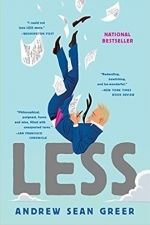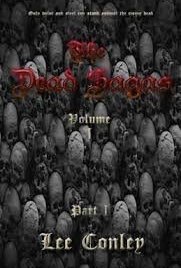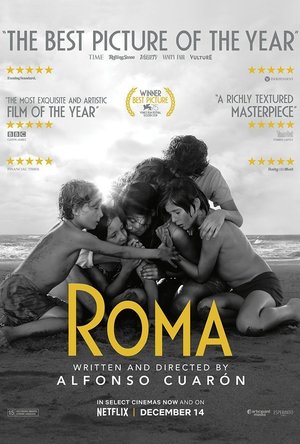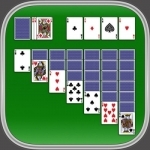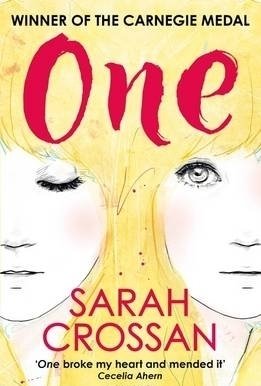Search
Search results
Gail (4 KP) rated One Hell of a Ride in Books
Jun 4, 2018
One Hell of A Ride by Ju Epraime
Four stars
I love historical romance stories. This one was different but good. Cas has been living as a young lad all her life. Her grandfather thought it would be a good idea sense she loved working on the ranch. It was funny how the author had Joe falling when he thought Cas was a lad. It was a rough time to be a woman and I can see why Cassie preferred to be thought of as a lad. The freedom to just be you and not worry that you won’t be accepted. As a woman she wouldn’t have been able to run her grandfather’s ranches or live alone. Joe was super sweet and handsome. He didn’t want to take advantage of Cassie so he kept away doing what he could to keep the ranch going. They don’t have many men like Joe walking around anymore. If they’re some can they be pointed in my direction lol. The author could've put more detail in the landscape but the book was well written. The characters were a little dry but I somewhat expected that with the time the story was written in. Would’ve like more details about Joe and where he came from and what he really did before visiting the ranch. There were parts that could’ve been left out. Overall the story was a good one.
Four stars
I love historical romance stories. This one was different but good. Cas has been living as a young lad all her life. Her grandfather thought it would be a good idea sense she loved working on the ranch. It was funny how the author had Joe falling when he thought Cas was a lad. It was a rough time to be a woman and I can see why Cassie preferred to be thought of as a lad. The freedom to just be you and not worry that you won’t be accepted. As a woman she wouldn’t have been able to run her grandfather’s ranches or live alone. Joe was super sweet and handsome. He didn’t want to take advantage of Cassie so he kept away doing what he could to keep the ranch going. They don’t have many men like Joe walking around anymore. If they’re some can they be pointed in my direction lol. The author could've put more detail in the landscape but the book was well written. The characters were a little dry but I somewhat expected that with the time the story was written in. Would’ve like more details about Joe and where he came from and what he really did before visiting the ranch. There were parts that could’ve been left out. Overall the story was a good one.
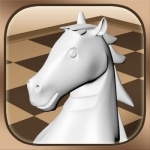
Chess Prime 3D
Games and Education
App
Chess Prime 3D is one of the best designed 3D chess games for the iPad / iPhone. It provides...
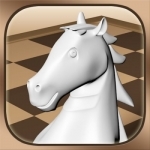
Chess Prime 3D Pro
Games and Education
App
Chess Prime 3D is one of the best designed 3D chess games for the iPad / iPhone. It provides...
Goddess in the Stacks (553 KP) rated Less in Books
Jul 28, 2018
Less is a good name for this book, because that's how I found it. Less than the love story it is purported to be. Less interesting than people say it is. Less funny than reviews would have me believe. Less than I was expecting. It's a Pulitzer Prize winner, apparently? Maybe I just don't "get" contemporary fiction. Because unless it's YA, I very, VERY rarely like it. I didn't like Arthur Less. None of his misadventures were that funny.
The book was a little meta; Arthur is told that the book he's writing isn't that interesting because his protagonist, a middle aged gay white man, isn't interesting and no one cares about him. Which is exactly how I feel about Arthur Less. He's a middle aged gay white man with the means to travel the world, and a boyfriend who would have married him if he'd only, I don't know, asked. But he just floats through his life a little melancholy and woe is me. And not in the like actually depressed kind of way. Just - meh.
Arthur is BORING. Arthur is privileged, and boring, and annoying as all hell. This book just makes me want to avoid Pulitzer Prize winners. Who awards these prizes, and WHY? Also why does everybody rave about books like this?
Blargh. Don't bother with this book. People who say it made them laugh out loud don't know what they're talking about, or perhaps haven't read actually funny books. They should read something by Ellen, or Trevor Noah, or Tiffany Haddish. THEY'RE ACTUALLY FUNNY.
You can find all my reviews at http://goddessinthestacks.wordpress.com
The book was a little meta; Arthur is told that the book he's writing isn't that interesting because his protagonist, a middle aged gay white man, isn't interesting and no one cares about him. Which is exactly how I feel about Arthur Less. He's a middle aged gay white man with the means to travel the world, and a boyfriend who would have married him if he'd only, I don't know, asked. But he just floats through his life a little melancholy and woe is me. And not in the like actually depressed kind of way. Just - meh.
Arthur is BORING. Arthur is privileged, and boring, and annoying as all hell. This book just makes me want to avoid Pulitzer Prize winners. Who awards these prizes, and WHY? Also why does everybody rave about books like this?
Blargh. Don't bother with this book. People who say it made them laugh out loud don't know what they're talking about, or perhaps haven't read actually funny books. They should read something by Ellen, or Trevor Noah, or Tiffany Haddish. THEY'RE ACTUALLY FUNNY.
You can find all my reviews at http://goddessinthestacks.wordpress.com
Ivana A. | Diary of Difference (1171 KP) rated The Dead Sagas, Volume I, Part I in Books
Jul 10, 2018
The Dead Sagas: Volume I, Part I by Lee Conley is a dark fantasy novel, a horror saga unlike any other. This is not a book for the weak. This is the book for the bravest, the ones who dare to read it, and the ones who can handle to continue living with what they now know.
Book description:
In a land called Arnar, where brave warriors fight for glory, a great evil comes alive.
The secrets of which the scholars were writing about in the past years, the scary stories that were being told in families throughout the generations are becoming true.
Creatures we thought were dead are now walking through the streets, spreading their disease, killing innocent people, and are about to take over Arnar.
The brave warriors are prepared to die defending their lands, but how can you fight creatures that barely feel pain? Are the warriors strong enough?
My Thoughts:
A story that will leave you breathless until the very end, a story that will push you into anxiety and make you bite your nails. A story that speaks about evil, and good, love, bravery and survival, a book that will sit on your shelf after reading it, and you’ll give it a look once in a while, and say: Ahh.. that was good!
In The Dead Sagas we have the chance to follow the stories of many characters. We will meet scholars and apprentices, we meet warriors and lords, we meet people from the street, doing everything they can to survive, we meet survivors that have seen things and we will meet sailors that are dying.
From chapter to chapter, the story goes from one character to another, and we slowly see the progression of the evil creatures, the spreading pace by pace. While it starts with sailors getting sick and dying afterwards on a ship, it slowly continues to become more and more intense, as we see people literally transforming into dead walkers right after they die, right in front of our eyes.
You will meet Bjorn, who escaped a tribe that cooks and eats people, you will meet Arnulf, who sees unimaginable things will being a lord of the watch. You will see him go through the greatest pain in life, you will see him afraid and brave, you will see him fighting, even though he wants to go and cry in the corner and die.
You will meet a girl that sells her body, so she can buy food for her and her little brother. You will meet a woman warrior, and learn about her amazing and brave story, you will watch how people see their loved ones die right in front of their eyes, and sometimes, they even have to be the ones to kill them in order to survive.
Even though we learn so much about the characters and their stories, it was hard for me to really connect with any of them, as the chapters moved fast from one character to another. This is probably the reason to why I also found the beginning quite slow. It took me around 90 pages, to start realising what is happening.
There will be a lot of violence in this book, a lot of swearing, and scenes that might upset or offend you. This book is not for the weak ones, that is for sure. And while for some of you this might put you off this book, I do have to say that if the book didn’t have a strong language and violent scenes like it does, it wouldn’t have been the same.
The biggest ''flaw'' I had was the ending. I won’t say anything spoiler-ish , as I don’t want to ruin the book for you, but let’s just say that I didn’t expect it to end the way it did.
Even though this is a story about the dead people walking around and killing everything in front of them, this is actually a book about the survivors, the ones that managed to retell this story - the ones that lost anything and everything to be where they are now. This is for the lives of the brave souls, the mighty warriors, that were noble and tried to protect their lands.
A massive thanks to the author, Lee Conley, who managed to find me in the deep waters of Twitter, and who agreed to send me a paperback copy of this book in exchange for my honest opinion.
Book description:
In a land called Arnar, where brave warriors fight for glory, a great evil comes alive.
The secrets of which the scholars were writing about in the past years, the scary stories that were being told in families throughout the generations are becoming true.
Creatures we thought were dead are now walking through the streets, spreading their disease, killing innocent people, and are about to take over Arnar.
The brave warriors are prepared to die defending their lands, but how can you fight creatures that barely feel pain? Are the warriors strong enough?
My Thoughts:
A story that will leave you breathless until the very end, a story that will push you into anxiety and make you bite your nails. A story that speaks about evil, and good, love, bravery and survival, a book that will sit on your shelf after reading it, and you’ll give it a look once in a while, and say: Ahh.. that was good!
In The Dead Sagas we have the chance to follow the stories of many characters. We will meet scholars and apprentices, we meet warriors and lords, we meet people from the street, doing everything they can to survive, we meet survivors that have seen things and we will meet sailors that are dying.
From chapter to chapter, the story goes from one character to another, and we slowly see the progression of the evil creatures, the spreading pace by pace. While it starts with sailors getting sick and dying afterwards on a ship, it slowly continues to become more and more intense, as we see people literally transforming into dead walkers right after they die, right in front of our eyes.
You will meet Bjorn, who escaped a tribe that cooks and eats people, you will meet Arnulf, who sees unimaginable things will being a lord of the watch. You will see him go through the greatest pain in life, you will see him afraid and brave, you will see him fighting, even though he wants to go and cry in the corner and die.
You will meet a girl that sells her body, so she can buy food for her and her little brother. You will meet a woman warrior, and learn about her amazing and brave story, you will watch how people see their loved ones die right in front of their eyes, and sometimes, they even have to be the ones to kill them in order to survive.
Even though we learn so much about the characters and their stories, it was hard for me to really connect with any of them, as the chapters moved fast from one character to another. This is probably the reason to why I also found the beginning quite slow. It took me around 90 pages, to start realising what is happening.
There will be a lot of violence in this book, a lot of swearing, and scenes that might upset or offend you. This book is not for the weak ones, that is for sure. And while for some of you this might put you off this book, I do have to say that if the book didn’t have a strong language and violent scenes like it does, it wouldn’t have been the same.
The biggest ''flaw'' I had was the ending. I won’t say anything spoiler-ish , as I don’t want to ruin the book for you, but let’s just say that I didn’t expect it to end the way it did.
Even though this is a story about the dead people walking around and killing everything in front of them, this is actually a book about the survivors, the ones that managed to retell this story - the ones that lost anything and everything to be where they are now. This is for the lives of the brave souls, the mighty warriors, that were noble and tried to protect their lands.
A massive thanks to the author, Lee Conley, who managed to find me in the deep waters of Twitter, and who agreed to send me a paperback copy of this book in exchange for my honest opinion.
Kirk Bage (1775 KP) rated Roma (2018) in Movies
Mar 2, 2020 (Updated Mar 3, 2020)
I watched Roma exactly a week ago today. And although I knew 20 minutes in that I loved it, and at the end that I really loved it, I have taken that time to let it settle within me in before coming to write about it. Some films are so good that you have to do that: let it sink into you fully, before doing anything so trivial as judging and comparing them. Roma is incomparable! I have never seen anything like it, or felt as deeply moved by a film in a long time.
Not that it didn’t get attention at the time of its release, it did, receiving 10 Oscar nominations and winning 3, for best foreign language film, director and cinematography, but it certainly wasn’t seen by as many people as it should have been, despite its presence on Netflix from the start. Having digested it now, and spending some time reading about how and why it was made, I feel a slight mission to recommend it to as many people as I can.
Based on Alfonso Cuarón’s own childhood in Mexico City, and his memories of his family and especially their housemaid, Liboria (Libo) Rodriguez, to whom the film is dedicated, it is a masterpiece labour of love that few directors ever achieve or even attempt to make. After a strong career of exceptional films, including Y Tu Mamá También, Children of Men and Gravity, it was the box office and critical success of the latter that gave Cuarón carte blanche to go and make whatever project he chose. Where many might have been tempted by the big money of superhero or fantasy movies (for which he had some experience with Harry Potter and the Prisoner of Azkaban) he went back to his roots and shot a very personal non-English film, in black and white, where no music exists except that which occurs naturally, and on the surface not much happens.
At least it feels like not much is happening, such is the naturalistic, almost improvised (although it wasn’t) style and pace; shot with a lens capturing detail and nuance with some of the most beautiful photography I have ever had the privilege to see. Truly, an awful lot is happening, but you have to feel and experience it, not simply be told it by the narrative. It takes a while for our Hollywood conditioned brains to accept this at first, and many might come to it and give up half an hour in because of that challenge. I can promise, however, there is not a single thing boring about this film, unless humanity is boring.
Oscar nominated lead Yalitza Aparicio as the shy, loving maid, Cleo, was not an actor before this film. She auditioned and was hand picked by Cuarón from hundreds of young women, without knowing who he was or what the film was about. Apparently, the film was shot in sequence so as not to confuse her emotionally on her extraordinary journey. She is so unassuming and natural that part of you falls in love with her immediately. In time, we almost come to forget we are watching an act at all, and almost become her, such is the empathy she evokes.
Which isn’t an easy ride, as we watch her be gently and then cruelly ignored, mistreated and used; climaxing in one of the most astonishingly painful and jaw-dropping scenes imaginable, and then a scene of such powerful redemption and humanity it instantly breaks the heart and lifts the soul. All the while she never asks for attention or love, but is just herself: a young woman living a difficult but beautiful life in a country and time full of turmoil, prejudice and social change.
The recreation of Mexico in 1970 is so breathtaking, it is hard to imagine at times we are not watching a documentary from that era. But, it is the detail the lens chooses to capture that reminds you this is a visual poem and a love-letter to a time, a place and a family far away in history and the memory of one man (represented by ten year old Carlos Peralta as Paco). At times it evokes the work of the very greatest film artists of all time: Bergman, Fellini, Hitchcock etc. Not one image is wasted or insignificant, from the reflection of the sky in water, to the dog-shit constantly lining the driveway. Everything is chosen and meaningful in the full context of the work.
There is no awkward exposition, no dramatic moments milked for all they are worth, no sequences of heightened excitement that manipulate us; simply truthful moments that hang in the air for what they are, leaving us to decide how we relate to them without ever preaching or teaching us how. In that way, it is a work of such maturity that I doubt many living directors could emulate it at all. The closest comparison I can think of is the personal passion Spielberg put into Shindler’s List, but really it is a moot comparison, and in fact owes much more to films like Haneke’s The White Ribbon.
Can it be faulted? Well, yes, certainly. But, honestly, I don’t see the point in trying. It is as close to perfection a small story of this kind can be. Importantly, I think it is an open film, that allows us to take from it whatever we like, relating to our own experiences and cares. For me, it said that any pain and hardship can be overcome, as long as there is love and beauty walking by its side. A message of no small importance. If you haven’t seen it, I urge you to do so. If you have, then please keep spreading the word. I believe it to be a genuine classic that will endure the criticism of many decades to come. Without a doubt in my mind something very special indeed.
Not that it didn’t get attention at the time of its release, it did, receiving 10 Oscar nominations and winning 3, for best foreign language film, director and cinematography, but it certainly wasn’t seen by as many people as it should have been, despite its presence on Netflix from the start. Having digested it now, and spending some time reading about how and why it was made, I feel a slight mission to recommend it to as many people as I can.
Based on Alfonso Cuarón’s own childhood in Mexico City, and his memories of his family and especially their housemaid, Liboria (Libo) Rodriguez, to whom the film is dedicated, it is a masterpiece labour of love that few directors ever achieve or even attempt to make. After a strong career of exceptional films, including Y Tu Mamá También, Children of Men and Gravity, it was the box office and critical success of the latter that gave Cuarón carte blanche to go and make whatever project he chose. Where many might have been tempted by the big money of superhero or fantasy movies (for which he had some experience with Harry Potter and the Prisoner of Azkaban) he went back to his roots and shot a very personal non-English film, in black and white, where no music exists except that which occurs naturally, and on the surface not much happens.
At least it feels like not much is happening, such is the naturalistic, almost improvised (although it wasn’t) style and pace; shot with a lens capturing detail and nuance with some of the most beautiful photography I have ever had the privilege to see. Truly, an awful lot is happening, but you have to feel and experience it, not simply be told it by the narrative. It takes a while for our Hollywood conditioned brains to accept this at first, and many might come to it and give up half an hour in because of that challenge. I can promise, however, there is not a single thing boring about this film, unless humanity is boring.
Oscar nominated lead Yalitza Aparicio as the shy, loving maid, Cleo, was not an actor before this film. She auditioned and was hand picked by Cuarón from hundreds of young women, without knowing who he was or what the film was about. Apparently, the film was shot in sequence so as not to confuse her emotionally on her extraordinary journey. She is so unassuming and natural that part of you falls in love with her immediately. In time, we almost come to forget we are watching an act at all, and almost become her, such is the empathy she evokes.
Which isn’t an easy ride, as we watch her be gently and then cruelly ignored, mistreated and used; climaxing in one of the most astonishingly painful and jaw-dropping scenes imaginable, and then a scene of such powerful redemption and humanity it instantly breaks the heart and lifts the soul. All the while she never asks for attention or love, but is just herself: a young woman living a difficult but beautiful life in a country and time full of turmoil, prejudice and social change.
The recreation of Mexico in 1970 is so breathtaking, it is hard to imagine at times we are not watching a documentary from that era. But, it is the detail the lens chooses to capture that reminds you this is a visual poem and a love-letter to a time, a place and a family far away in history and the memory of one man (represented by ten year old Carlos Peralta as Paco). At times it evokes the work of the very greatest film artists of all time: Bergman, Fellini, Hitchcock etc. Not one image is wasted or insignificant, from the reflection of the sky in water, to the dog-shit constantly lining the driveway. Everything is chosen and meaningful in the full context of the work.
There is no awkward exposition, no dramatic moments milked for all they are worth, no sequences of heightened excitement that manipulate us; simply truthful moments that hang in the air for what they are, leaving us to decide how we relate to them without ever preaching or teaching us how. In that way, it is a work of such maturity that I doubt many living directors could emulate it at all. The closest comparison I can think of is the personal passion Spielberg put into Shindler’s List, but really it is a moot comparison, and in fact owes much more to films like Haneke’s The White Ribbon.
Can it be faulted? Well, yes, certainly. But, honestly, I don’t see the point in trying. It is as close to perfection a small story of this kind can be. Importantly, I think it is an open film, that allows us to take from it whatever we like, relating to our own experiences and cares. For me, it said that any pain and hardship can be overcome, as long as there is love and beauty walking by its side. A message of no small importance. If you haven’t seen it, I urge you to do so. If you have, then please keep spreading the word. I believe it to be a genuine classic that will endure the criticism of many decades to come. Without a doubt in my mind something very special indeed.
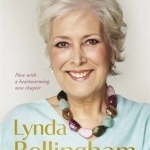
There's Something I've Been Dying to Tell You
Book
By turns, it is riotous, deeply serious, practical and sad. Reading it is like being at her kitchen...
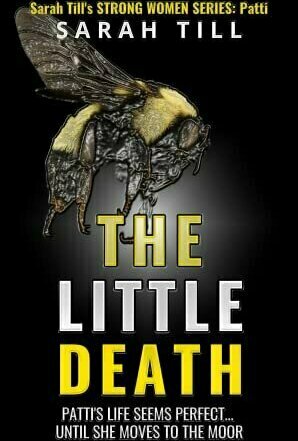
The Little Death
Book
When Patti moves to the moor she finds the peaceful haven she expected awash with people visiting an...
Grace and Tippi are conjoined twins, after being homeschooled for 16 years they are forced to attend Hornbeacon High.
The city can longer fund the girls homeschooling, nor can the family afford it, together they must venture the real world of stares, nasty comments, cruelty and obstacles they have to overcome.
Will they make friends? love! could it even be a possibility?
The girls realise they have to make a heart wrenching decision not only for the family but for themselves.
Easy money
<I> If I owned a pistol i could rob a bank.
I could stick a gun in a teller's face
and demand a stack of cash
then motor off in a stolen Maserati.
I could sell drugs to kids on the street corners
or pimp out girls to the highest bidder.
I could break and law I wanted.
If they imprisoned me,
they'd have to lock up Tippi too,
which is false arrest,
Illegal,
and would never stand up in a
court of law.
If I didn't have this damn conscience,
we'd be rich.</I>
I loved this verse (above) It made me laugh at the thought, she has a point, how would that work?
My thoughts,
I loved this book, i have never read anything like this before and it was thought-provoking. I had never thought of things such as when one of them is ill, the other stays in bed until recuperation, or what if one of them falls in love? If one drinks alcohol, will the other get drunk? There were times during this book where i would stop reading and do a thinking pose like J.D from Scrubs and ponder.
This book has made me want to learn more about conjoined twins and the effects on their lives, if anyone know any other books like this let me know, even if its non fiction.
Characters:
The parents - I felt no connection to the parents whatsoever, it felt like they had given up, What with the father being made redundant, depressed, and an alcoholic. The mum was overworked in a bank. However saying that it does show you the effects and costs,strain that it can have on families.
Yasmeen - has her own problems and with that she has become hardened to bullies, the twins need a friend like this
Grace was they shyer of the two whereas Tippi was most outspoken and bitchy.
Jon - I felt no connection with him at all, I just felt he was in the story as Sarah Crossan wanted to touch on the subject of love.
Dragon I felt sorry for as she was having to fend for herself in the sense that her parents couldn't afford ballet lessons so she had to find alternative ways to carry on with her dance,
This is the first book that I have ever read in verse and it was so different, easy to read and quick. the book is 430 pages and read this in less than a day.
Its told in Grace's POV, however it would have been nice to hear from Tippi too.
Sarah Crossan touches very slightly on other subjects but doesn't delve deep into them.
She also shows you that these 2 girls have such a bond that if the possibility of separation was an option they would refuse, despite the health scares, remarks and challenges they will come across.
Overall I rate this book 4 out of 5 stars
The city can longer fund the girls homeschooling, nor can the family afford it, together they must venture the real world of stares, nasty comments, cruelty and obstacles they have to overcome.
Will they make friends? love! could it even be a possibility?
The girls realise they have to make a heart wrenching decision not only for the family but for themselves.
Easy money
<I> If I owned a pistol i could rob a bank.
I could stick a gun in a teller's face
and demand a stack of cash
then motor off in a stolen Maserati.
I could sell drugs to kids on the street corners
or pimp out girls to the highest bidder.
I could break and law I wanted.
If they imprisoned me,
they'd have to lock up Tippi too,
which is false arrest,
Illegal,
and would never stand up in a
court of law.
If I didn't have this damn conscience,
we'd be rich.</I>
I loved this verse (above) It made me laugh at the thought, she has a point, how would that work?
My thoughts,
I loved this book, i have never read anything like this before and it was thought-provoking. I had never thought of things such as when one of them is ill, the other stays in bed until recuperation, or what if one of them falls in love? If one drinks alcohol, will the other get drunk? There were times during this book where i would stop reading and do a thinking pose like J.D from Scrubs and ponder.
This book has made me want to learn more about conjoined twins and the effects on their lives, if anyone know any other books like this let me know, even if its non fiction.
Characters:
The parents - I felt no connection to the parents whatsoever, it felt like they had given up, What with the father being made redundant, depressed, and an alcoholic. The mum was overworked in a bank. However saying that it does show you the effects and costs,strain that it can have on families.
Yasmeen - has her own problems and with that she has become hardened to bullies, the twins need a friend like this
Grace was they shyer of the two whereas Tippi was most outspoken and bitchy.
Jon - I felt no connection with him at all, I just felt he was in the story as Sarah Crossan wanted to touch on the subject of love.
Dragon I felt sorry for as she was having to fend for herself in the sense that her parents couldn't afford ballet lessons so she had to find alternative ways to carry on with her dance,
This is the first book that I have ever read in verse and it was so different, easy to read and quick. the book is 430 pages and read this in less than a day.
Its told in Grace's POV, however it would have been nice to hear from Tippi too.
Sarah Crossan touches very slightly on other subjects but doesn't delve deep into them.
She also shows you that these 2 girls have such a bond that if the possibility of separation was an option they would refuse, despite the health scares, remarks and challenges they will come across.
Overall I rate this book 4 out of 5 stars

